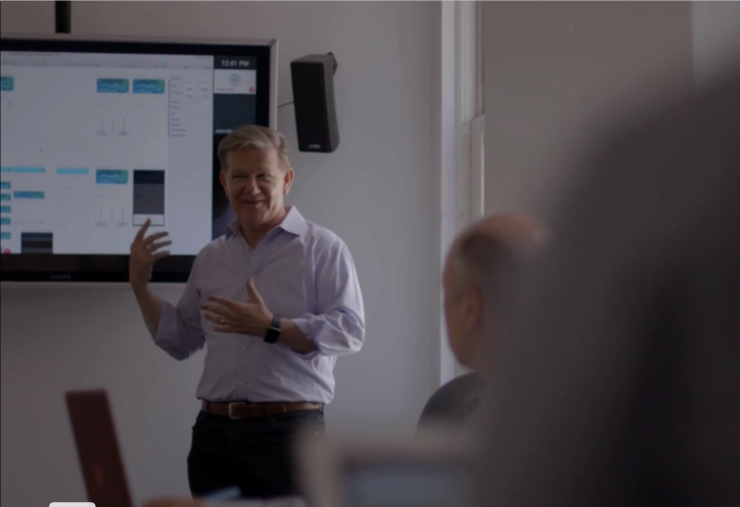Robinhood's plan to charter a national bank sparked headlines last week, but the process is only just getting started and will likely to stretch on for years.
Just ask Colin Walsh, the co-founder and CEO of Varo Money, who began discussions with regulators three years ago to charter a national bank. Though the fintech won approval from the Office of the Comptroller of the Currency last year to move forward, it is still waiting on an answer from the Federal Deposit Insurance Corp.
“It's a difficult process satisfying the regulators and making sure that you can build a safe, secure and profitable bank,” Walsh said in an interview. “It's no small task, but I think we've come a long way in terms of being able to demonstrate that Varo is probably the best suited of any fintech at this point in time to be able to accomplish that.”
Walsh is optimistic. “We’re in regular dialogue with the FDIC,” Walsh said. “We actually had a good meeting with them last week.”

Varo has responded to regulatory concerns with a slew of hires, including two former OCC officials, Amy Friend and Deven Bhatt, who both joined in April. Friend, who joined the board of directors, is the former general counsel at the OCC and a key architect of the agency's proposal to create a fintech charter. (In this case, Varo is applying for a full-fledged charter, sidestepping a legal challenge to the fintech charter.) Bhatt is Varo's chief information security officer, the same role he had at the OCC.
In early April, Varo hired Philippa Girling, who has held risk management positions at Investors Bank and Capital One, as chief risk officer. The bank's recruiting drive began in February when it hired Deep Varma, the former vice president of engineering at the online real estate firm Trulia.
“The team is coming together nicely,” Walsh said.
He said Varo Money also has put in place key technology partners, including the core provider Temenos.
“Opening a bank is not an overnight process, but I certainly feel really positive about the steps that are being taken to get there,” Walsh said.
Varo first began officially looking at a bank charter in 2016, but Walsh was interested a year earlier when the company debuted. Walsh has stayed the course despite the delays.
“I said from the beginning that we wanted to become a national bank,” Walsh said. “It was kind of a contrarian view at the time, but it really was our plan right from the beginning.”
Robinhood is just beginning the same process, though it might do so with more scrutiny. The Menlo Park, Calif., company last year raised the ire of bankers and regulators after it falsely advertised a brokerage account as being federally insured. The issue stemmed from the suggestion that Robinhood had the blessing of the Securities Investor Protection Corp. and didn’t need approval for the account from the FDIC.
Robinhood executives quickly backtracked on that claim.
Walsh says he doesn’t believe Robinhood’s missteps will have any impact on Varo Money’s approval chances.
“The regulators will look at each application on its own merits,” Walsh said. “I don't know that they're going to necessarily paint everybody with the same brush. I think they look at each application and assess the business plan, assess the history of the company, and how they’re organized.”
No fintech to date has gained regulatory approval to become a full-fledged bank. The OCC has seen significant interest for its fintech charter, but the legal challenge by state regulators and the hefty approval requirements have scared off many firms.
Walsh said any fintech thinking about going through the application process will need to be well equipped to handle a variety of situations, particularly in the aftermath of the financial crisis.
“If there's some sort of an event that impacts customers’ confidence more broadly in the economy or more specifically for the institution, how will the management team deal with that?” Walsh said. “Whomever is going through this process is going to have the credibility and the experience to handle all those potential circumstances.”
As for when Varo Money will receive FDIC approval, that’s still unclear, Walsh said. He said there’s not really a timetable for approval as Varo Money continues to “thoroughly test” technology systems.
“This is not something we’re going to rush,” he said. “You don’t hack your way into building a national bank. You have to do it the right way, and we’re hiring the heavy hitters, and we’re making the right investments that we need to get it right.”





